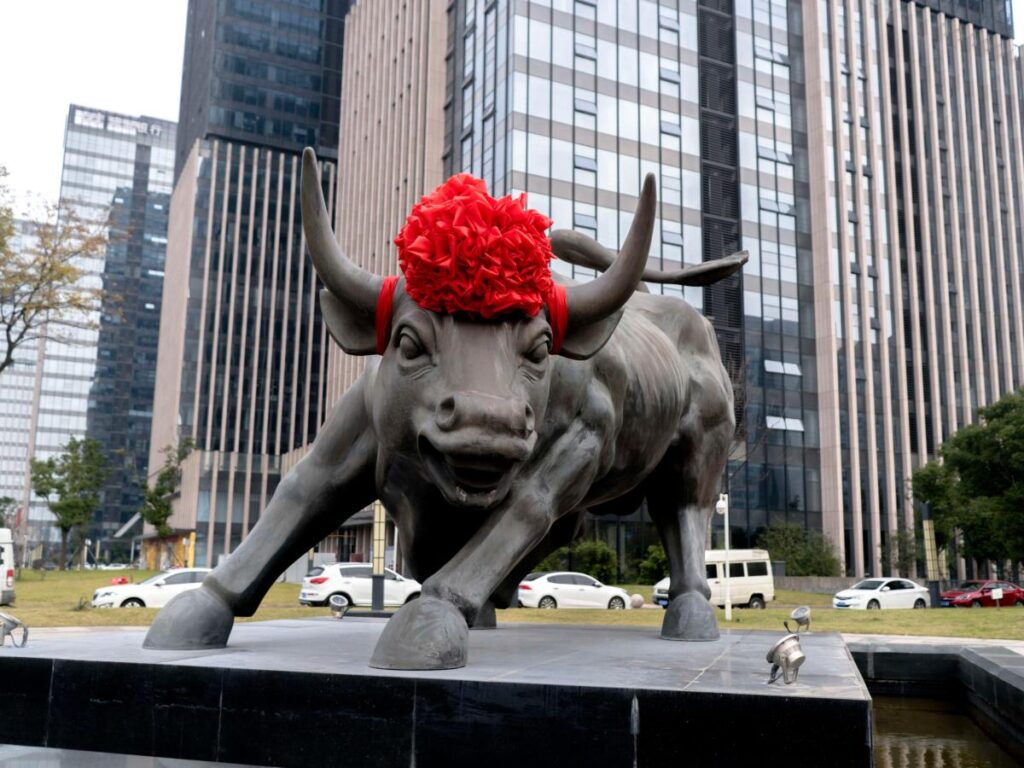-
China’s stock markets surged post-National Day break, but gains pared quickly.
-
Beijing’s aggressive stimulus measures have bolstered market sentiment, despite economic challenges.
-
However, China’s top economic planning agency disappointed investors at a highly anticipated briefing.
China’s stock markets surged on Tuesday thanks to pent-up demand from a weeklong trading break — but jittery investors kept a lid on the rally.
The mainland’s benchmark CSI 300 index opened nearly 11% higher, but pared gains swiftly. The index closed 5.9% higher.
Benchmark indices on the Shanghai and Shenzhen markets also ended sharply higher after intraday gyrations.
Sentiment in China’s stock markets — which entered 2024 in meltdown mode — has been massively bolstered by Beijing’s September 24 announcement of aggressive stimulus to support its flagging economy. The CSI 300 is about 25% year-to-date.
China, the world’s second-largest economy, is dealing with multiple challenges, including a property crisis, deflation, and high youth unemployment.
Even before Tuesday’s opening, China’s social media was abuzz with what the stock markets may hold following the weeklong public holiday break.
On Tuesday, hashtags about mainland China’s stock market — including the apt #A-shares rollercoaster — rushed to the top of Weibo’s trending list. A-shares are stocks of Chinese companies listed on the Shanghai and Shenzhen stock exchanges.
Chinese shares came off their highs on Tuesday in part because investors were disappointed by announcements out of an ongoing press briefing by China’s top economic planner, the National Development and Reform Commission.
The commission did not announce fresh fiscal stimulus, which fell short of market expectations, wrote Yue Su, the principal China economist at the Economist Intelligence Unit on Tuesday.
Still, the commission’s messaging was positive, wrote Su. “We believe the pro-growth policy stance remains unchanged.”
However, the stock market euphoria before the weeklong break might have prompted the Chinese government to be more cautious in its stimulus measures to ensure that resources flow into weaker areas of the economy, she added.
Tuesday’s stock volatility showed that China’s economic fundamentals haven’t caught up with market expectations, Hao Zhou, the chief economist of Guotai Junan International, told CNBC.
“The market was expecting too much from the government,” he said on Tuesday.
In Hong Kong, the Hang Seng Index closed nearly 10% lower.
The index is still about 25% higher year-to-date following strong gains during the mainland’s weeklong break.
Read the original article on Business Insider
Read the full article here


